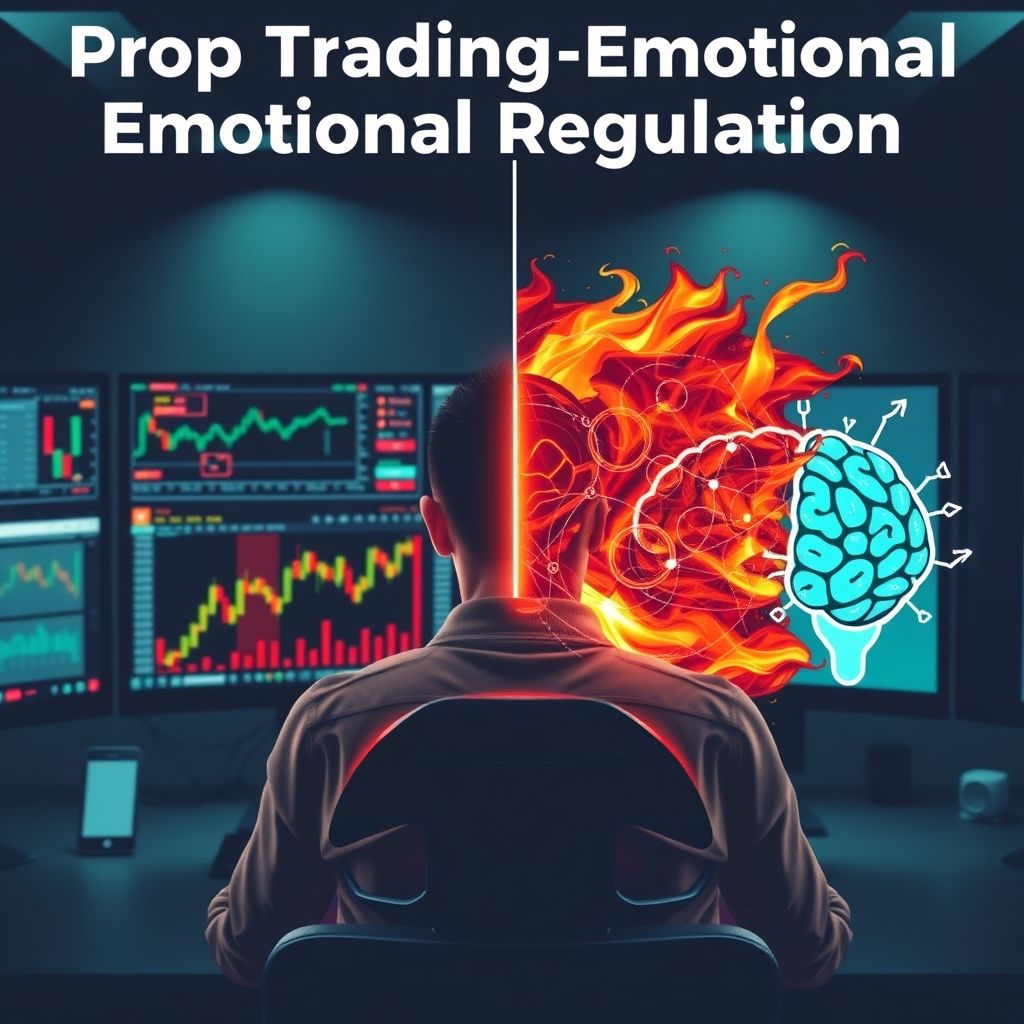Prop Trading Emotional Regulation: How to Control Emotions During Prop Challenges
One of the most underrated yet vital skills in the world of trading is prop trading emotional regulation. While strategy, risk management, and timing matter, none of these will work effectively if emotions are allowed to run the show. Traders at every level must learn to manage their emotional state—especially during high-pressure prop firm challenges where consistency is key.
At Larsa Capital, we’ve seen firsthand how emotional control can be the difference between success and failure during the evaluation stages. Whether you’re on your first challenge or your fifth, mental discipline is essential.
Why Emotional Regulation Matters in Prop Trading
The pressure to perform, particularly under strict rules, can trigger a wide range of emotions—anxiety, frustration, fear, or even overconfidence. If these feelings aren’t managed, they can lead to impulsive trades, rule violations, and unnecessary losses.
This is especially true in prop challenges, where you have a limited drawdown and a clear profit target. Without mental control, even the best strategy can crumble.
Key Techniques for Prop Trading Emotional Regulation
Here are proven techniques to enhance your emotional control and stay focused throughout your challenge:
Create a Clear Daily Routine
Having a structured start to your trading day provides mental stability. Wake up early, review your plan, and enter the market only when your strategy aligns. Routines help build confidence and reduce emotional decision-making.
Set Process Goals, Not Just Outcome Goals
Instead of focusing solely on hitting 10% profit, concentrate on executing your process perfectly each day. When your mind is focused on the process—like following your trade rules—you reduce performance pressure and limit frustration.
Take Breaks After Losing Trades
Losses are part of trading, but back-to-back losses can affect your mindset. A short break after a tough session allows you to reset and avoid revenge trading, which is emotionally driven and often harmful.
Practice Visualization and Journaling
Mental rehearsal improves execution under pressure. Visualize how you’ll respond to losing trades, missed entries, or high volatility. Additionally, journaling your trades helps uncover emotional patterns and improve self-awareness over time.
Use Breathing or Meditation Techniques
Simple breathing exercises before or during a trading session can significantly calm your nervous system. Even five minutes of mindfulness or deep breathing can help reduce emotional reactivity.
Building Long-Term Discipline at Larsa Capital
At Larsa Capital, we value psychological discipline just as much as technical proficiency. We encourage all traders to develop emotional control as part of their challenge preparation. That’s why our funded program is structured not only to assess profitability but also to test psychological resilience.
Whether it’s a moment of drawdown or a string of winning trades, how you respond emotionally determines your long-term success. Our platform supports traders with realistic trading conditions and clear rules, which help reduce unnecessary stress and focus on strategic execution.
Prop Trading Emotional Regulation and Self-Awareness
Understanding your triggers is a critical part of mastering prop trading emotional regulation. Do you get anxious after a drawdown? Do you overtrade after a big win? Recognizing these tendencies allows you to create systems that reduce their impact—like daily loss limits or scheduled breaks.
By working on emotional regulation consistently, traders build a more stable, focused mindset that leads to long-term performance improvements.
Final Thoughts
Controlling emotions is not a bonus skill—it’s a core component of any successful trader’s toolkit. With the right mindset, discipline, and routine, you’ll navigate your prop challenges with clarity and confidence.
At Larsa Capital, we’re here to support traders who take both strategy and psychology seriously. Emotional mastery doesn’t happen overnight, but each step you take in that direction brings you closer to sustainable success.

